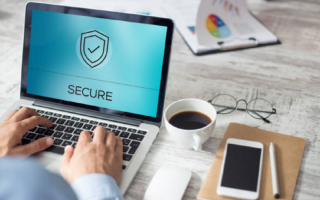Find out how to secure your computer and tools you can use if your device gets infected with malware.
Securing your computer
Use strong passwords


Using a strong password is important to ensure that it is not vulnerable to brute force attacks which are essentially repeated attempts at guessing a username and password. Avoid dictionary words, names, or simple variations of these. If you’re not sure what constitutes a good password, see our acceptable password guidance.
Use anti-virus software
Set it to update automatically and run routine scans. UCL staff and students can get anti-virus software for their home computers for free. Several products are available and can be downloaded from the UCL Software Database.
Regularly update operating systems and software
Set Windows to automatically download and install updates, you can manually check for updates by going to Microsoft’s Windows Update page.
It is also important to update software installed on your computer, particularly Java and Flash. Your web browser needs to be up-to-date as a lot of malware infects computers through browsing. Qualys BrowserCheck is useful for checking if your browser and plugins are up-to-date.
Just as with a Windows machine, it is important to keep your operating system on a Mac up to date. You can check for updates by going to Apple symbol > System Preferences > Software Update.
Use a firewall
Anti-virus software often comes with a built-in firewall, F-Secure does and is available for staff and students to download from the UCL Software Database.
Make regular backups
Modern hard disks are very reliable and seldom fail. But seldom isn’t the same as never, and there is always the possibility of accidentally deleting the wrong file.
You need to determine what files you’re going to back up - think which ones would cause you inconvenience or upset if they were to disappear - and how often. At UCL, central systems are backed up daily. This is almost certainly overkill for the majority of home systems, but it’s a decision you have to make for yourself. Are you willing to spend a few moments backing up your correspondence each day, or prepared to risk a couple of days’ work and perhaps tackle the task once a week?
Make your backups onto a separate device, not just somewhere else on your hard disk. (If the disk does fail, and it contains all your backups, you’ll likely lose the lot.) Remember also to periodically check that your backups have worked. Pick a random document and see if you can get it back.
Encrypt your data and device
Encryption is a process of encoding (sensitive, personal, confidential, highly confidential) data in such a way that only authorised parties can access it. Find out more on our Encrypt your data and devices page.
Remove an infection from your device
Firstly, ensure that you are running up-to-date anti-virus software. UCL has licences for both staff and students for anti-virus software which can be downloaded from the UCL Software Database.
Your anti-virus software should be able to catch and/or remove malware, but some malware can be particularly difficult to detect and remove. In this case we recommend that you try the following:
- Combofix
- Malwarebytes
Note: Malwarebytes is not free for use in educational environments. You may therefore need to purchase a licence. - Sophos Anti Rootkit
 Close
Close

